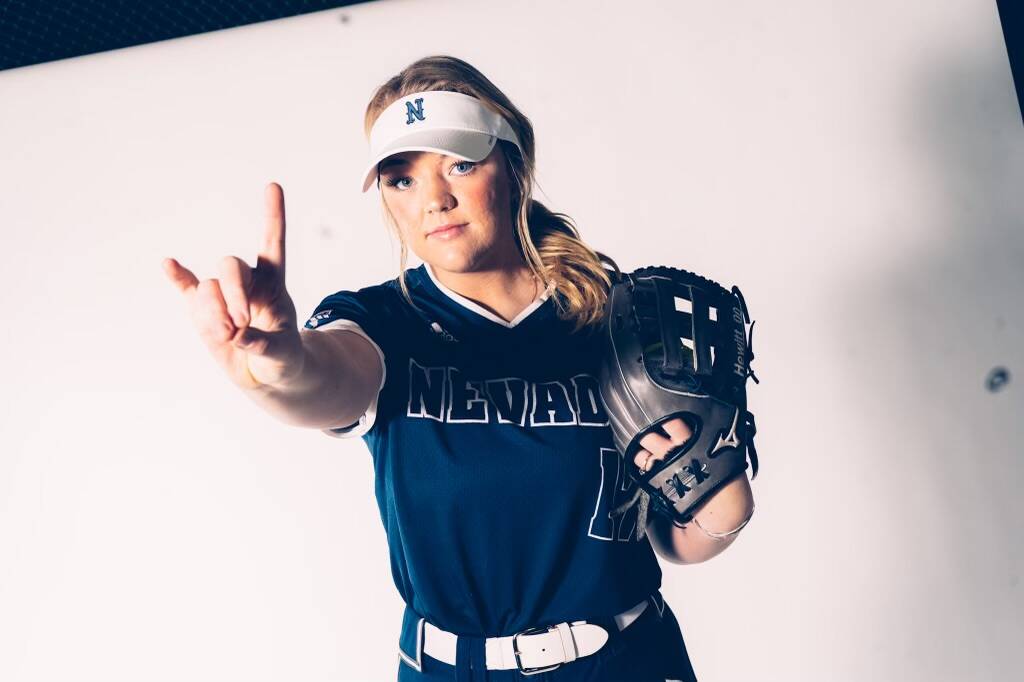VICTOR JOECKS: How Nevada’s Equal Rights Amendment threatens women’s sports
If you support taking away opportunities from female athletes, you should be in favor of the Equal Rights Amendment.
In November, Nevadans will vote on Question 1, which supporters call the Equal Rights Amendment. That sounds uncontroversial. Who could be against “equal rights”?
Well, everyone — once you find out how the term is being used.
The proposal would add this language to the state constitution: “Equality of rights under the law shall not be denied or abridged by this State or any of its political subdivisions on account of race, color, creed, sex, sexual orientation, gender identity or expression, age, disability, ancestry or national origin.”
Think about the implications of this. Gun ownership is a right. A 22-year-old can buy a firearm. A 2-year-old can’t. That denies a right “on account” of age, which this amendment would seem to prevent.
Another example. The DMV can deny a driver’s license to people based on their vision. That’s common sense — there’s no need to explain why the blind shouldn’t be driving on public roads. Again, Nevada is denying a right “on account” of disability.
What’s happening is that “equal” has multiple meanings. People are equal in the sense that everyone has equal worth and value as someone created in God’s image. Every adult — notice how this right is abridged based on age — gets one vote. People should receive equal justice under the law.
But in other senses, people aren’t equal at all. Just look around. Everyone looks different. People have different backgrounds, interests, abilities, skills and beliefs. There wouldn’t be any slogans about diversity if everyone were equal in every sense of the word.
Sometimes, as in the examples above, it makes sense for the law to treat different people differently. Another such area is sports, where there are vast differences between high-level male and female athletes. For instance, Olympic gold medalist Tori Bowie’s lifetime best in the 100 meters is 10.78. In 2017, that mark was bested 15,000 times by male runners, per a Duke Law Center for Sports Law and Policy report.
Thus prohibiting males from participating in female sports benefits women and girls. Indeed, it’s what allows women to compete on an equal playing field. This isn’t just a theoretical concern to Tyra Clary. She’s a softball player at UNR who recognizes the obvious: There are major strength differences between male and female athletes.
“I’m not oblivious to the fact that a man is much stronger than a woman,” she said. They “hit balls farther, throw balls faster.” As a pitcher, she said, the increased bat speed of male players would make her concerned about her safety if the state allowed them to compete against her.
Of course, that assumes she or any female would even make the team. The irony of “equal rights” is that they could lead to decidedly unequal outcomes for female athletes.
If Question 1 passes, “men will be taking away these opportunities from women,” Clary said.
There’s another way this proposal would hurt women. The law currently abridges a man’s ability to enter female locker rooms. Say goodbye to that if courts take the language about sex and gender identity literally.
“It really does disgust me the thought of a man looking at me changing while I’m in my sports bra and undergarments,” she said.
Proponents don’t even attempt to justify these outcomes. Instead, they insist they won’t happen. When banning differential treatment leads to unfavorable outcomes, they insist the judicial branch will ignore this language. Perhaps.
But admitting that people shouldn’t always be treated equally undercuts the impetus for an equal rights amendment.
Contact Victor Joecks at vjoecks@reviewjournal.com or 702-383-4698. Follow @victorjoecks on Twitter.























